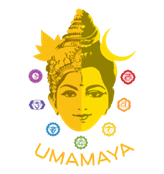In my two decades of experience in India, from North to South and in between, here’s my list of the top 10 things everyone should know before going there for the first time.

1. Begging culture. From orphans to homeless to mafia-controlled syndicates to wandering mendicants seeking alms. Go in with your eyes open. Be prepared to give a little, or not. Consider that 25 cents US is equivalent to about 18 rupees. That will buy 2–3 samosa for the orphan or the homeless, 5 cups of chai for the mendicant. The syndicated beggars are harder to spot, and once you give to one, a crowd may gather around you for more. Consider bringing a bag of pencils or something else that the children may use in school. The giving of such a donation will find gratitude in the needing and be scoffed at by the rest; but they will not generally press the issue when they learn you are all about health and education and not just passing out free money. As well, sometimes it’s better to take one or three of those begging children, homeless or mendicants directly to a food stall or dhaba and buy them a meal directly as some may just be saving their coin for the next bottle of alcohol they can afford.

2. Food. South style spicy. Northern not so much. Read up a little on the 6 tastes according to Ayurveda, the traditional Indian science of life and learn a bit about how they use their spices and seasonings. ・ In the west you may find chefs often reluctant to part with their recipes; not so much in India I’ve found and have always been greeted by the kindest cooperation when inquiring into how to prepare a dish. ・ Bottled water should be top of your list of priorities for health and hygiene, and make sure you check the plastic seals around the caps at purchase time; sometimes, not often, but sometimes they may be tampered with.

3. Medicine. If you fall ill, local pharmacies sell antibiotics in low volume over the counter. ・ Hospitals and even clinics found in major train stations are top-notch. ・ Ayurvedic remedies work quickly and effectively on some things like stomach ailments or piles. ・ Every salon offering itself up as an ‘Ayurvedic healing spot’ is not, and you might want to inquire whether there is a doctor interned there if you are looking for traditional remedies, rejuvenation therapies like pancha karma or other. ・ Major producers of Ayurvedic medicines have ceased to use heavy metals; some of the minors have not. Get the straight skinny on the ingredients before using.・ In a pinch, if you come down with dysentery-like symptoms and there’s no pharmacy or clinic around, get yourself to a local sweets shop and order a couple plates of gulab jamun. Make sure the sweet syrup is amply applied. Drink a small glass full of the syrup – wacky remedy that seems for some reason to kill some bugs!・ Finally, if you happen to wind up sick whilst among the hill tribes, seek out a tiny bit of opium. Stick it under your tongue and let it dissolve. Sleep it off for a couple days.

4. Money. Don’t pay for goods or services in advance if you can avoid it. The Indian work ethic is quite often different from what we may be used to in the west, or even the east. Very often, this difference may manifest itself as a disregard for punctuality. What is promised soon might not come for a week – unless payment is pending and then you may just get exactly what you wanted when you wanted it.・ Tipping is very similar to western practices. Give what you can afford depending on the service level you received.・ Black market rates for money exchange are rather excellent, a good several points above the bank rate. Keep your ears open for the street hustle. You’ll more likely than not be approached for whatever street needs you need. Otherwise ask directly around town. Somebody should be able to point you in the right direction. Black market operations are the best worst keep secret in town.

5. Hotels. Expensive doesn’t necessarily equal good. Opulent might find winter rooms spacious but drafty. First class hotels don’t always serve better food than the local dhaba. Sometimes they do, but it’s not always a sure bet. Expensive hotels guarantee that you will spend a lot of money, but don’t always guarantee the best service. Budget hotels, airport hotels, city business hotels will see hot room service delivered to your room in good time and all your needs catered to just fine – usually – including international call service, money changing, taxi service, etc.

6. Spirituality. Yoga ashrams are a dime a dozen these days. Gurus even more so. If looking for a body-mind oriented experience, try Rishikesh, where the abundance of ashrams and proliferation of teachings is such that the locals are tending to keep each other honest while competing for your business.・ Street pundits, fortune tellers, gypsy babas and self-styled teachers abound, often advertising their wares and services. A word of caution. Enlightenment doesn’t come canned. Shakti delivery services are unreliable. Kundalini is rarely activated by glance or touch and to expect differently is asking to be conned.・ Sit or wander with the sadhu. Various sects and personality exist; check them out. Many speak a bit of English. Many don’t. Some speak quite eloquently, at least on God and enlightenment topics. Be prudent. Some are wild. Some are quiescent. Some are awake. Some are totally lost. Some will take you for a fool and treat you the same. Some may take you all the way.・ Think outside your box. I once was approached by a group of wandering warrior Sikhs. Their leader and I struck up a conversation and wound up exchanging my rudraksha for his dagger.

7. Books. Plentiful and cheap! Not only are the newer publications at least half price of what you’d pay in most other civilized countries, but new/used paperbacks are so abundant you’d swear you were in Europe. In the big cities that is. But even the smaller towns may have a good used book store where the tourists are known to gather. Not only on all topics Indian, religious and spiritual, but global pop-culture is readily available

8. Crime. Take the usual precautions you would in any developed nation. An Indian city may host no more or less than a Detroit or Berlin. ・ In Indonesia it’s commonly accepted practice to bribe the police if caught out for lesser offenses. Not so in India and you may want to be careful if you plan to overstay a a tourist visa, smuggle a brick of something, get rowdy in the street or other. Sometimes the grease goes and sometimes the works get all stuck up. I’d think hard about the risks. An Indian jail is not really where you want to spend time.

9. Transportation. Cessna and light twin-props fly into the Himalayas for a couple hundred bucks. Well worth it! Buses make the journey between Delhi and Shimla/Manali in about 12 hours with a couple good rest stops for food and chai in between.. Tickets are generally about 20 bucks. Seats are plush and recline and a decent Hindi movie can be enjoyed for a few hours mid-journey.・ Auto-rickshaws will take you someplace for a tenth of the price of a taxi and are equally if not more reliable. Long distance taxi hires on the other hand are great for a several-days journey someplace. Make sure the driver is licensed for out of state travel. Might want to get someone at the hotel to help you out with this. You’ll be asked for toll, tax and petrol money up front. Offer to pay it as you go and get the receipts at each stop to avoid being scammed. A driver may take advantage of you, but will also quickly understand when he’s dealing with a more savvy passenger as well. But, safest bet will be Ola or Uber, assuming you will have a smartphone with plenty of data and data is cheap in India; consider buying a sim/data plan with least amount of hassle while exiting the airport when you arrive in India.
10. And finally, “Acha” & “Thikhai” (teekay). The latter approximates best to ‘okay’ or ‘fine’ while the former while similarly meaning ‘good’ is so versatile in its use as a question or distinguishing exclamation that one who is well versed in their appropriate use might just be mistaken for a native. Definitely recommend learning these two and having fun using them. Oh, and ‘bas’ (no more) for when the servers just wont stop piling rice on your plate. Also another versatile expression though.
have a great trip!

…is a Saiva Tantrika, Gyana Yogi and founder of Uma Maheshwara Yoga & Ayurveda. David has an MA in Semiotics, lives in Japan with his family and works as a coach in L & D, devoting his time to developing science-based tools and programs that help people reach the fullest potential of the human condition.
Discover more from REAL YOGA
Subscribe to get the latest posts sent to your email.

